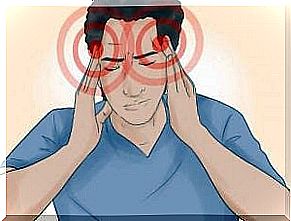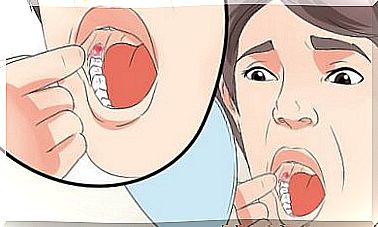Stress Headache Symptoms And Tips

Stress is stiffness or tension caused by various fearful or overwhelming situations. These situations can lead to psychological disturbances or psychosomatic reactions, including stress headaches.
The symptoms that can cause stress are diverse and can start with a small or large intensity. We may feel a slight pressure in our head or even an extreme migraine.
The symptoms also vary from person to person. What looks like a headache may be related to migraines, insomnia, fatigue, or more. If you have headaches more than twice a week over the course of several months, you may be suffering from chronic headaches.
The causes of headaches can be physical, such as allergies that cause sinusitis, as well as psychological, such as worry. Stress is one of the most common psychological causes of headaches.
What Causes Stress Headaches?

- Constant voltage
- Holding your head in the same position for too long
- Working a lot with a computer
- Sleeping with your head in an unnatural position
- Tension of the eye muscles
- Smoking, drinking alcohol or consuming a lot of caffeine
- Sinusitis or nasal congestion
- Cold or flu
- Contraction of the neck muscles and scalp
Stress headaches are not a result of structural injuries in the brain or serious illness.
Everyday worries are one of the causes of stress, but there is a big difference between thinking about something and worrying about something. When you think, you look for solutions to your problem. However, if you worry about something, you paralyze yourself in the same pattern of reasoning. This drains your mind and causes headaches.
From a psychologist’s point of view, it is very interesting to analyze this pain. Stress mobilizes our brain chemistry and changes the balance of our muscles, vertebrae and nerves in our skull. Thus, it increases tension and this often leads to headaches. If the stress is light or temporary, it doesn’t hurt us. However, when it lasts longer, the body remains in a state of alert that causes the body’s defense system to weaken. You become exhausted and experience stress headaches.
Stress Headache Symptoms

- Not a severe, annoying headache.
- May occur isolated or routinely.
- More intense pain around the temples, scalp, and the back of your neck.
- Fatigue
- Sleep problems
- Muscle pain (shoulders and upper back)
- Sensitivity to climate changes, sounds and lighting.
If the pain is mild, you can treat it with homemade remedies. If the pain is strong and persistent, it is better to make an appointment with your doctor.
Measures to reduce the frequency of stress headaches

If your stress headache also leads to other symptoms, such as muscle tension or teeth grinding, you may end up suffering from intense pain that affects your quality of life.
Because of this, it is necessary to take control of the situations in your daily life that have a negative influence on your mood. For example:
- Enjoy fun activities such as listening to music, reading, exercising, dancing or playing with your pets.
- Take a moment to do a relaxation exercise using techniques such as breathing, deep thinking, yoga, and meditation.
- Make your life easier: choose the activities you need to do and manage your time efficiently.
- Get help. Talking to family and friends helps you solve problems and manage your stress.
- Stop the negative thoughts. This releases endorphins that contribute to a positive attitude.
- Exercise regularly to prevent and combat stress.
- Get a massage from a professional that makes you feel comfortable.
- If your headache is caused by the cold, keep yourself warm.
- Change your sleeping position. Also improve your posture when reading, working or exercising. Sleep and rest well.
- Train your neck and shoulders regularly.









